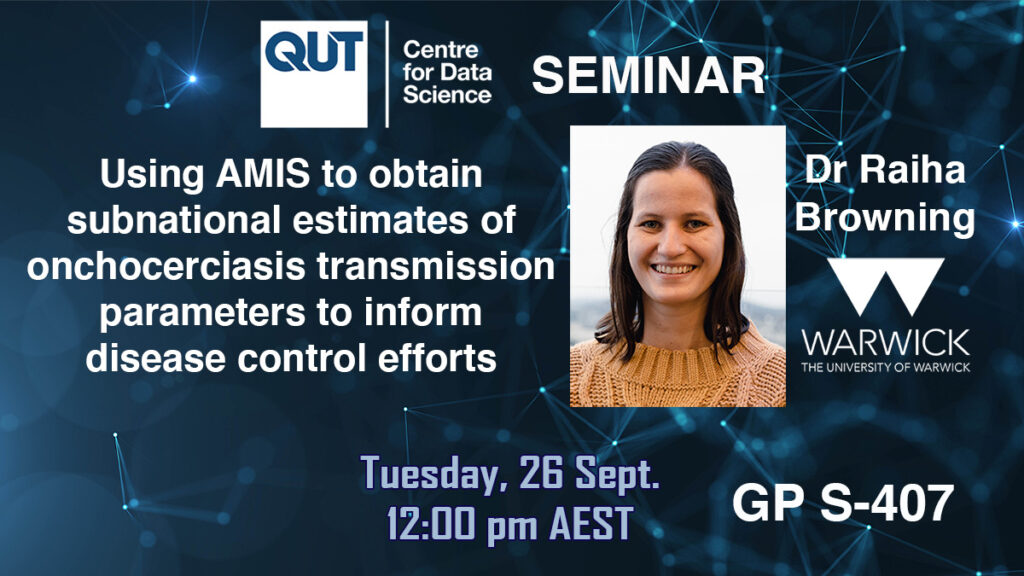CDS is proud to welcome back PhD alumnus Dr Raiha Browning!
About the talk:
Onchocerciasis, also known as river blindness, is a neglected tropical disease (NTD) caused by the parasitic filarial nematode Onchocerca volvulus, and is transmitted through the bites of Simulium blackflies. Understanding the key epidemiological parameters driving disease transmission is crucial for developing effective strategies to achieve the goals set out in the WHO’s 2021–2030 Roadmap for NTDs.
Adaptive multiple important sampling (AMIS) is an extension of importance sampling whereby, at each iteration, the proposal distribution is updated using the framework of multiple mixture estimators, and the importance weights from all simulations (past and present) are recomputed. We use an extension of AMIS to fit geostatistical prevalence maps for onchocerciasis in West, Central and East African countries, to a transmission model to obtain sub-national estimates of disease prevalence at a fine spatial scale, without the need to run the transmission model many times. This ultimately produces a weighted sample of the transmission model parameters for each location or pixel in the map, which can be used to project and compare future outcomes of disease prevalence under various intervention scenarios.
This is joint work with Matt Dixon, Martin Walker, Maria-Gloria Basanez, Simon Spencer and Deirdre Hollingsworth.
About Raiha:
Raiha recently completed her PhD at QUT under the supervision of Kerrie Mengersen. Her research interests are in developing and applying Bayesian methods to solve real-world problems. She is now working as a postdoc in the Department of Statistics at University of Warwick and focusses on developing and applying methods to estimate the key epidemiological parameters driving transmission of neglected tropical diseases (NTDs). Raiha is a member of the Neglected Tropical Diseases Modelling Consortium (NTDMC), that was formed to support national programmes and inform policy decisions, such as the design of intervention programs, to reduce the burden of NTDs.
Details:
| Location: | GP S-407 |
| Start Date: | 26/09/2023 [add to calendar] |
| Start Time: | 12:00 pm |
